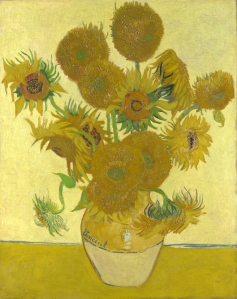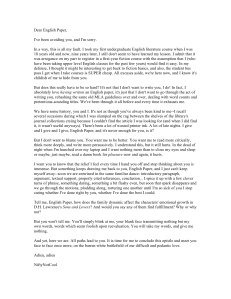 A couple of weeks ago, I read Paulette Regan’s Unsettling the Settler Within for a class I am taking on the nature of forgiveness and apologies. Dr. Regan is a scholar, a Canadian “settler” (i.e. like me, and probably most of my readership, she is not First Nations), and acted as the Director of Research for the Truth and Reconciliation Commission of Canada. This book was written prior to the start of the TRC’s mandate and deals with the legacy of Canada’s Indian Residential Schools and, in a broader sense, the disastrous effects that Canada’s colonization has had on the Indigenous people who have lived here for thousands and thousands of years–long before the first British flag was planted on this so-called “empty” land. More to the point, she emphasizes the urgent need, not for First Nations people to reconcile themselves to their present situation, but for settler Canadians to reconcile themselves to Canada’s violent, intentionally racist, colonial history, and to recognize the ways in which these colonial structures and systems are still very much active in present-day Canada.
A couple of weeks ago, I read Paulette Regan’s Unsettling the Settler Within for a class I am taking on the nature of forgiveness and apologies. Dr. Regan is a scholar, a Canadian “settler” (i.e. like me, and probably most of my readership, she is not First Nations), and acted as the Director of Research for the Truth and Reconciliation Commission of Canada. This book was written prior to the start of the TRC’s mandate and deals with the legacy of Canada’s Indian Residential Schools and, in a broader sense, the disastrous effects that Canada’s colonization has had on the Indigenous people who have lived here for thousands and thousands of years–long before the first British flag was planted on this so-called “empty” land. More to the point, she emphasizes the urgent need, not for First Nations people to reconcile themselves to their present situation, but for settler Canadians to reconcile themselves to Canada’s violent, intentionally racist, colonial history, and to recognize the ways in which these colonial structures and systems are still very much active in present-day Canada.
Unlike many of my fellow white Canadians, I did not grow up completely ignorant of residential schools or of violent policies like the “Sixties Scoop” (in which First Nations children were forcibly removed from their families and adopted out to white parents, in many cases actually sold to American families as if they were livestock). Since I didn’t learn about any of these events in school I can only assume I knew of their existence because my parents bothered to tell me (thanks Mom and Dad!). Beyond this starting point, though, my path as a settler who calls Canada home and wants to be part of a nation I can be truly proud of (a country that keeps its promises and actively upholds EVERYONE’S human rights) is not clear.
There is a step (or rather a long series of steps) beyond being simply “aware” of the history. What we do with this step is important. Regan cautions that well-meaning Canadian settlers are all to quick to pity Indigenous people, and the discomfort this pity arouses causes us to try to find quick fixes for “their problems”–in other words, to continue to disenfranchise and ignore the agency of First Nations people themselves. So if I’m not supposed to “fix” things, what can I do?
I sense this is a question (or rather a long series of questions) that I will need to ask myself as I move through my life, but for starters, I can let go. I can let go of cherished ideas based on lies. I can let go of the convenience of the status quo.
For me, today, this means two things:
- Acknowledging that what Indigenous people experienced at the hands of the colonial (and later, the Canadian) government was genocide. First Nations people were forcibly removed from their homes and lands, killed, starved, forbidden from participating in cultural traditions like the potlatch and the sun dance, and removed from their families and taken to Residential Schools where they were abused (physically, sexually, and psychologically), underfed, inadequately cared for, and prohibited from speaking their own languages. Until relatively recently in our history, Indigenous people in Canada were unable to vote, become professionals, or, in the case of women, marry a non-Indigenous person without losing their native status. For more than a hundred years, the government of this country enacted policies and programs with the specific intent of attempting to wipe out “the Indian problem” and make First Nations people and culture disappear in Canada. This is genocide, as defined by the United Nations. The fact that First Nations people are still here and that parts of their cultures have survived is a testament to their resilience, not our benevolence.
- Supporting BC First Nations if they want to change the name of the province of British Columbia. West of the Rockies, colonial agents stopped bothering to make any treaties with Indigenous tribes (not that the government honoured the ones they had made farther east but that’s another issue) and simply took the land they wanted. BC is unceded First Nations territory, and as such, to call the land of this province either “British” (i.e. belonging to the British) or “Columbia” (after the “Columbian” district of this part of North American, which surely takes its name from genocidal rapist Christopher Columbus) is inaccurate and insulting. The name of our province was chosen by Queen Victoria (a monarch who never set foot here), but the land was never hers, or ours, to name. We did not buy it. We did not pay for it, trade for it, or treat for it. We have no right to insist on a status quo based on theft. Obviously, if BC’s First Nations ultimately decide that they’re fine with the province’s name as-is, that’s cool with me, but I don’t believe settlers’ wishes should be prioritized in the matter.
I called this blog post a “prologue” because these thoughts, these considerations, are just the very very start of what will presumably be a life-long project of identifying and acknowledging my colonial biases, the benefits my status as a settler has brought me, and trying, ultimately, to do something about it in a way that is respectful and effective. My own humanity is implicated in the ways I choose to respect or ignore the humanity of others. I’ve a long road ahead and I’m just getting started.
 Written by anthropologist
Written by anthropologist 












